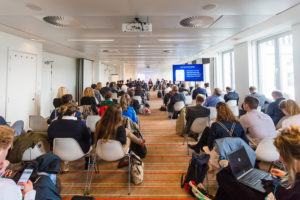
In October 2019, SeeRRI project was presented at the workshop “Science for Citizens: how science meets regions and cities”, which showcase new ways of co-creation with multi-stakeholders in the process of developing Regional Research and Innovation strategies. SeeRRI, a project funded by the European Commission, focuses on establishing responsible research and innovation ecosystems by integrating Smart Specialisation Strategy and RRI.
Please refer to this link for more information: https://europa.eu/regions-and-cities/programme/sessions/605/reply/121#comment-form
Take away message
– Citizens need to be involved in evidence-based policy processes more actively. This is the only way to guarantee these processes succeed, rather than pushing ahead with innovation strategies and societal reforms over the heads of people.
– Citizens provide the “missing link” in evidence-based policy: involving them actively means strengthening the uptake of scientific results and innovative solutions in society. This can have a tangible impact on policy-making, and often involves authorities wishing to solve problems in partnership with local communities.
Marzia Mazzonetto: “Citizen science represents a great opportunity to bring citizens and researchers together, to share research questions and to address community needs”.
Nikos Zaharis: “Developing a Territorial RRI means facing the broad transitional processes that are affecting European society, and that are difficult to manage for local governments. RRI has the capacity to support governance through scientific processes in uncertain and ambiguous periods”.
Nhien Nguyen: “Regions could work together on identifying a set of core principles and a roadmap to achieve an RRI ecosystem. RRI gives all the actors involved a voice. The quadruple helix – citizens, decision-makers, academia and industry – must be engaged to create RRI strategies tailored to local contexts”.
Jakub Jackowski: “Every change, no matter how small, that influences society must be done with the involvement of people. They have to understand the importance and reasons behind these changes and how they will affect their life. Only then will they be able to really participate in the process”.
Recent Comments